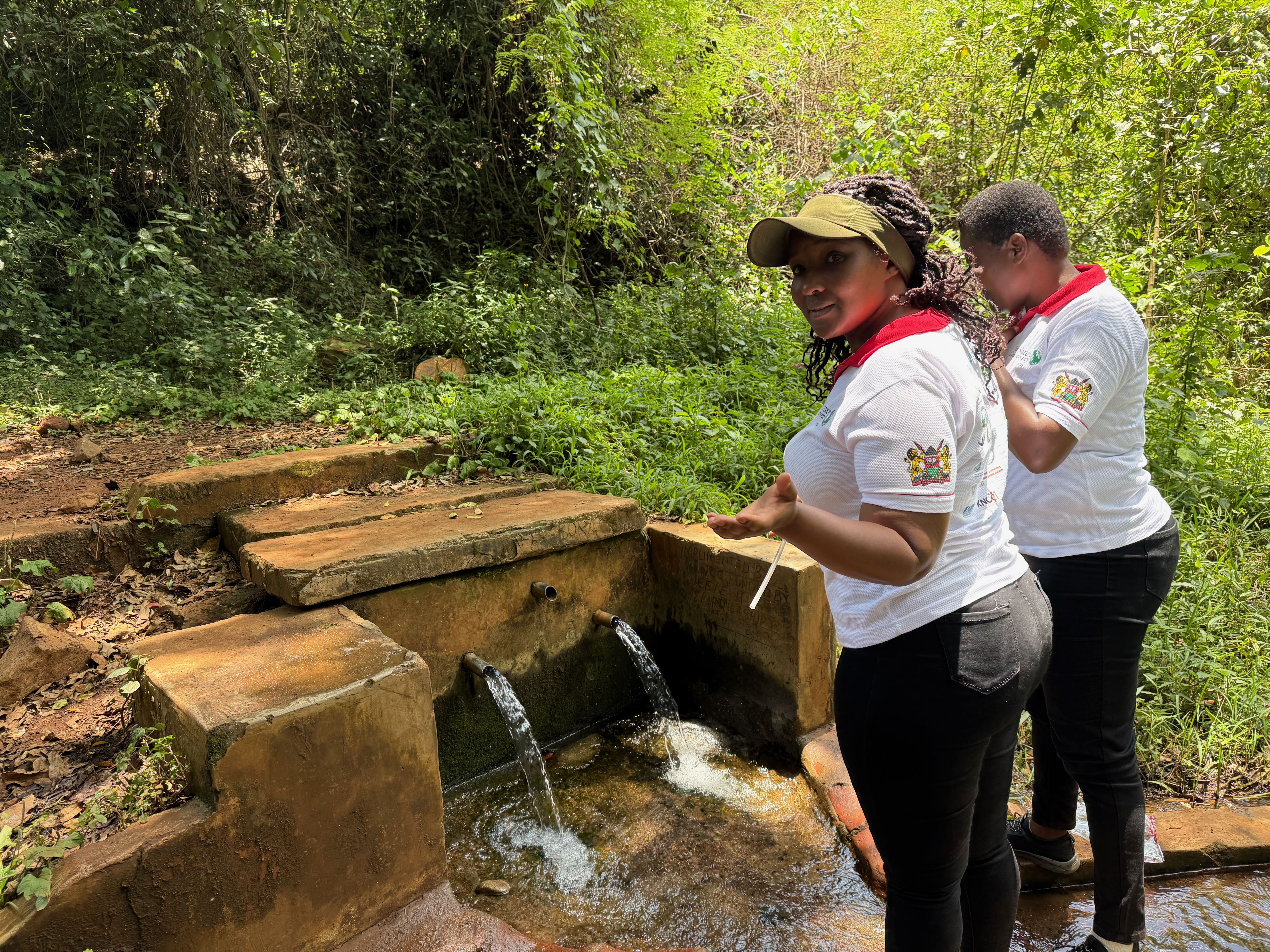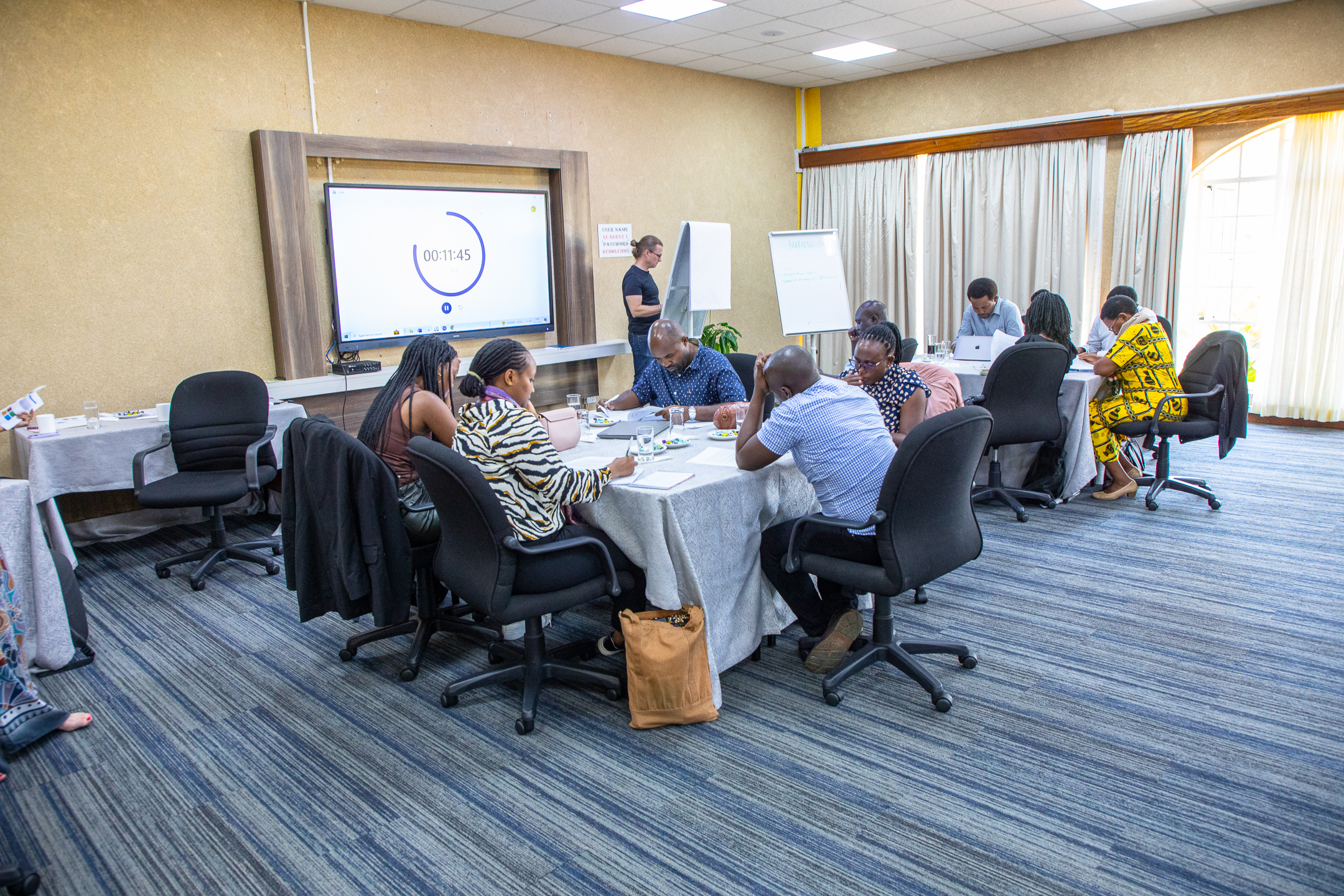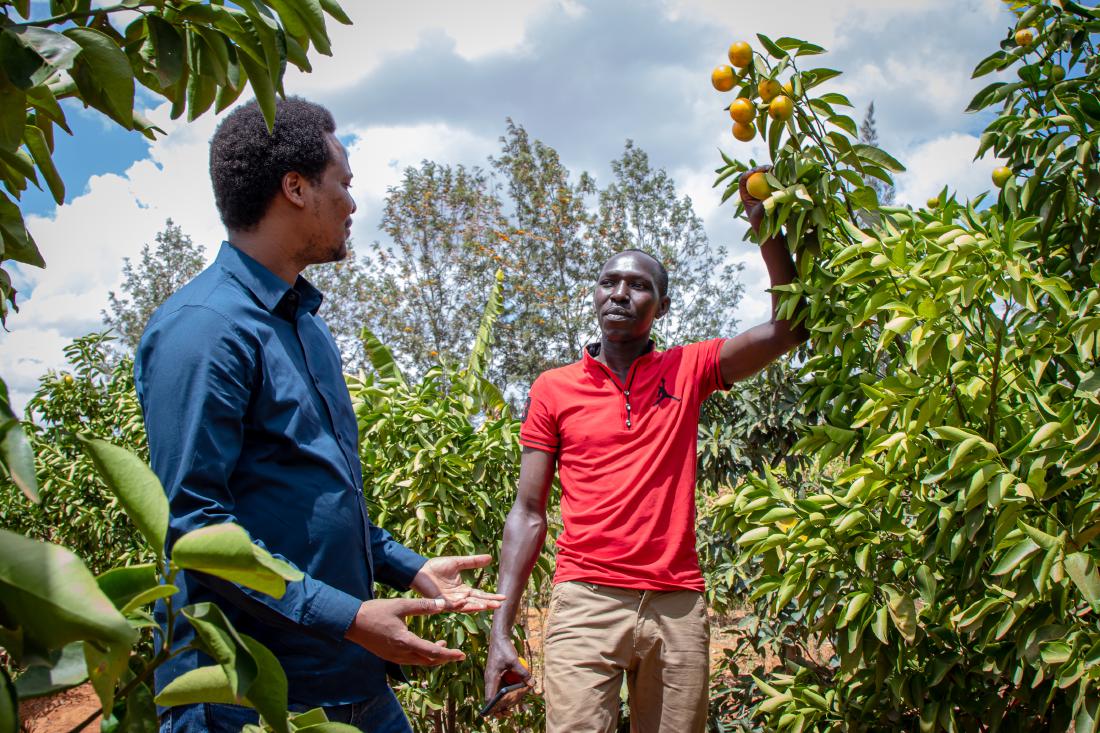Last month, we had the distinct pleasure of meeting with several of our Kenya partners whose work is at the forefront of climate-resilient solutions to food and water security. These new approaches are the types of projects that should be scaled more broadly to support communities at the frontlines of climate change.
Mathemu community members and the ASDF team building their new sand dam.
Ecologically appropriate solutions can improve water resources. As important, finding the right model for partnering with communities, involving their own investment in their future, encourages long-lasting resilient solutions. We saw the power of sand dams, a low-cost, sustainable solution pioneered by our partners at the Africa Sand Dam Foundation, to transform ecosystems and communities in dryland areas. Sand dams are reinforced cement walls built across a seasonal sandy river that retain rainwater and recharge the aquifer, ensuring clean water is available for months after the rains end. They provide sufficient water to support tree and vegetable nurseries and when combined with farmland terracing and tree planting, form a cycle of self-perpetuating water and soil conservation. This approach supports the production of a secure and diverse food supply, improves nutrition, food security, and livelihoods.

River Yala Water Fund Team
Water service providers are realizing that they save money by improving the quality of upstream water sources. This reduces the level of treatment required and lessens the need to develop or purchase new sources of water. Water, agriculture, and conservation are deeply connected–TNC, an environmental conservation focused agency, has recognized this intersectionality. We traveled to Eldoret, where we met with The Nature Conservancy’s Eldoret-Iten Water Fund team who partners with local farmers, the local water utility, and other critical stakeholders to protect and restore upstream water sources, ensuring a reliable supply of clean water for downstream communities. This model not only supports the health of watersheds and enhances agricultural livelihoods, but it also protects ecosystems and biodiversity. TNC’s approach includes working with farmers to adopt regenerative agriculture techniques and install water pans which enables them to irrigate their fields during the dry season. This strategy helps farmers get better prices when demand is high, thereby boosting their income.

RAIN Leadership Academy
We met with our partners at the Global Resilience Partnership who are leading the Resilient Agriculture Innovations for Nature (RAIN) challenge which identifies seed-level innovative climate resilience agricultural ideas, such as Farm to Feed’s social enterprise focused on the reduction of food waste using a digital platform to connect buyers to farmers with surplus produce.
RAIN helps to scale innovations like these into sustainable businesses. Several of the RAIN challenge winners presented at an investor forum at the UN Climate Week and had the opportunity to align with potential funders and drive attention to the need for agricultural systems transformation.
We also met with our partners at Blood:Water who support under-resourced community-driven organizations with long-term financial and organizational support. Their model demonstrates the power of sustained intentional partnership to promote local solutions.
It was an honor to meet each of our partners and see the impact of their work firsthand and it’s an even greater honor to provide ongoing support for their work.
If you’re interested in joining us to learn more about opportunities and co-funding partners like these to make real, lasting, change in food and water security in the Global South, please reach out to us.
